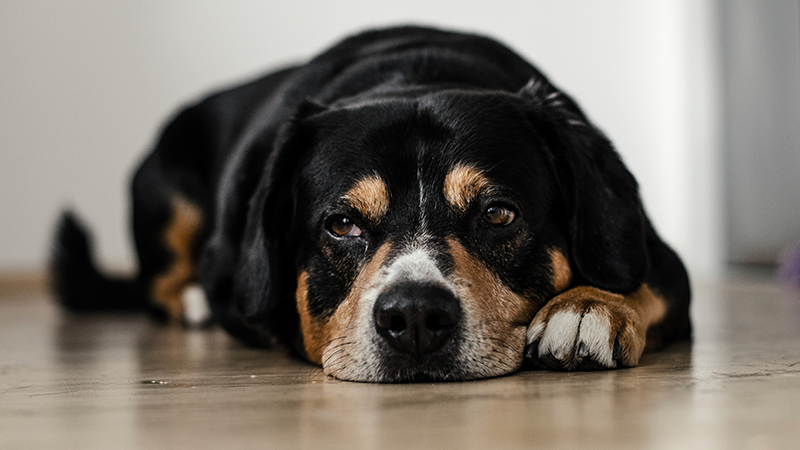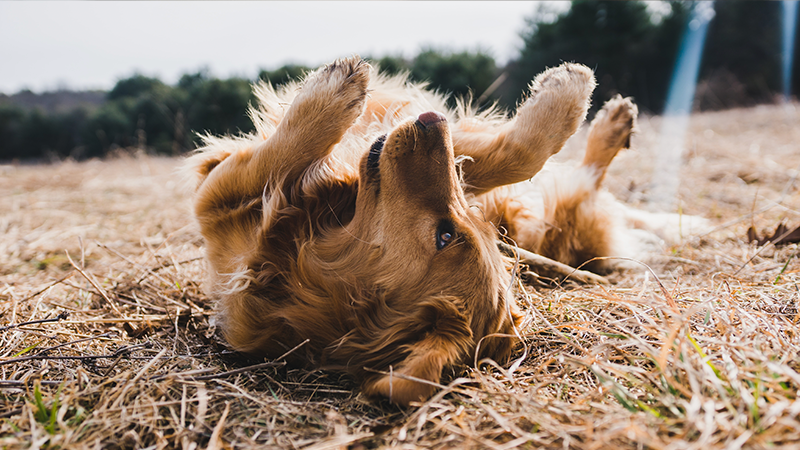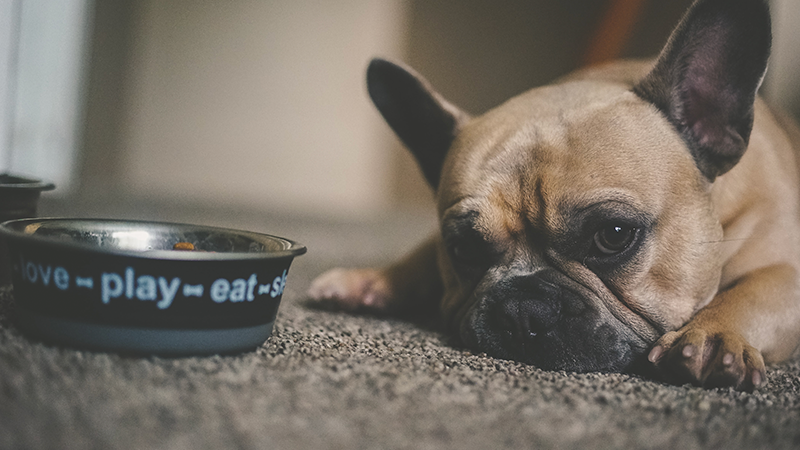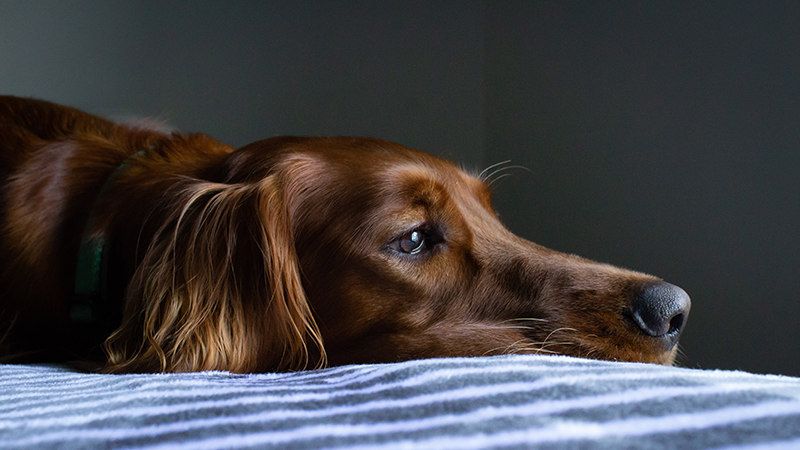
8 Ways Your Dog Could Be Telling You They're Ill
It’s not very nice at all when you realize your beloved pooch is not feeling themselves and showing signs that they are sick. If your dog suddenly falls seriously ill and is showing no signs of improvement, you should make an emergency call to your nearest veterinary hospital clinic as soon as you possibly can to get them treated and seen by a professional, qualified veterinary physician. There are certain behaviors and signs you can look out for in your dog that may tell you they are unwell. Read on to find out more in our guide to 8 ways your canine best friend could be telling you they’re ill.
Breathing Difficulties
It’s always a worry when you notice labored breathing in your dog. Breathing difficulties can be a sign of underlying health problems such as lung disease. It may also be caused by painful injuries, trauma, or a foreign body/object uncomfortably stuck in their body, such as shards of glass in their paws.

Changes in Activity Levels and Sleepiness
Does your dog usually have bundles of energy and enjoy running about the place but recently, you have seen a major drop in their activity levels as they have become more sedentary? There may be a whole host of reasons why your dog has suddenly become more lethargic and less playful. It could be due to infections, heart problems, liver problems, or even hypoglycemia.
Newly prescribed medications can also cause a dip in the activity levels in dogs and make them become drowsy.
Behavioral Changes
When dogs feel particularly unwell or are in pain, they tend to display changes in behavior and personality. Dogs who are usually active and sociable may start to withdraw and refrain from interacting with others when they are ill or in a large amount of pain. If they feel very ill, even a typically calm dog may start to have aggressive reactions and outbursts.
So, look out for sudden changes in the mood or behaviors of your dog. If they are consistently not behaving like their normal self, take them to your vet and see what the problem is and the treatment they may need.

Scooting and Butt Dragging Across the Floor
Your dog starting to regularly scoot its butt along the floor everywhere can seem confusing and rather amusing at first, but it could potentially be a sign of other health conditions and that they are unwell.
Butt scooting in dogs can be a sign they are going through medical issues such as itchy/irritated skin around the anus region, clogged or swollen anal glands, or that they have intestinal parasites or tapeworms. If you find yourself asking the question ‘what does dog dragging butt mean?’, you are not alone. To learn more about reasons why your dog may be exhibiting dog butt dragging, take a look at the article from Native Pet, experts in functional nutritious foods suitable for dogs of all breeds.
Take your dog to the vet if they persist with dragging their butt along the floor for worryingly too long. A vet will most likely examine your dog’s anal region to look for constipation, skin conditions, or any signs of infection.

Loss of Appetite
If your dog has gone completely off their food and has not eaten anything for a few days, then you should take them to the veterinary center. Dogs may go off their food and lose their appetite due to stress, changes in their environment, new medications, pain, internal obstructions, dental problems, or nausea. Your dog needs food to have enough energy to live an active lifestyle, play, and go for walks outdoors, so a loss of appetite can lead to a significant fall in physical activity in typically active and lively dogs.
Excessive Scratching and Licking
Your dog excessively scratching or licking their body may be a sign of them suffering from a skin condition. You should visit a vet promptly because by using utensils and cutting off some fur, they will be able to spot skin conditions that may not be visible to the naked eye on a dog with a long coat. Some skin problems your dog may experience can include things such as scaling, redness, inflammation, and bald patches. Most skin conditions in dogs are easily treatable.
Bowel Problems
Constipation, diarrhea, and flatulence are signs of digestive system disorders in dogs. Dogs can have trouble with their bowel movements due to intestinal blockages in the stomach area. You should definitely take your pooch to the vet if they are experiencing significant bowel problems.
Symptoms of bowel problems and blockages in dogs include things such as vomiting, drooling, loss of appetite, change in behavior, lethargy, swelling in the abdomen and anal areas, and so on.

Stiffness and Movement Issues
Stiffness and movement difficulties in dogs can be brought on by a range of conditions. Stiffness often comes on in dogs due to health conditions associated with aging, such as arthritis and dysplasia. Inflammation and stiff movement in dogs can also be triggered by parasite infestations or viral or bacterial infections.
You can reduce your dog’s stiffness and ease the pressure on their joints by adjusting their diet and giving them smaller portions of food to help them lose some weight. Moving around nimbly and quickly is much more difficult for overweight dogs, so losing that extra weight can considerably improve your dog’s quality of life.
If you have become highly concerned about your dog’s stiff movement and joint problems, then you should contact your vet and make an appointment as soon as possible so they can carry out a thorough physical examination to try and identify the cause of the issue and provide you with the adequate treatment.
So, there are multiple different ways your canine friend may be trying to tell you that they are feeling ill and not at all themselves. It’s important to know your dog’s normal behavior and mannerisms very well so that you can easily recognize abnormal behavior and spot signs that they may be ill and need to see the vet as soon as possible. Don’t panic, and try to act promptly if you think you are noticing clear signs indicating that your dog is unwell.










